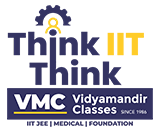Revolutionizing Education: CBSE’s Bold Step Towards a Credit-Based System!
 Posted On
Posted On
106 total views, 1 views today
In a groundbreaking move, the Central Board of Secondary Education (CBSE) is on the brink of implementing sweeping changes across Classes 9 to 12, revolutionizing the educational landscape in line with the visionary National Education Policy (NEP) 2020. Embracing the concept of creditisation, CBSE aims to bridge the gap between vocational and general education, fostering a seamless transition for students as they navigate through different educational streams.
Recent reports from The Indian Express shed light on CBSE’s ambitious proposal to broaden the horizons of subjects offered to students in Classes 10 and 12, with a significant emphasis on integrating more indigenous Indian languages into the curriculum. This forward-thinking initiative, circulated to all heads of CBSE-affiliated institutions towards the close of last year, invited feedback until December 5, 2023.
At the heart of this transformation lies the National Credit Framework (NCrF), introduced by the University Grants Commission (UGC) in 2022. The NCrF serves as a unified credit framework, seamlessly integrating training and skill development into both school and higher education systems. This framework mandates students to accrue a specific number of credits to progress from one academic level to the next, ultimately rendering them eligible for undergraduate programs at universities. These earned credits will be securely stored in the Academic Bank of Credits, accessible through a linked Digilocker account, ensuring a transparent and robust system.
To operationalize the NCrF in affiliated schools, CBSE established a subcommittee in 2022 tasked with proposing adjustments to the existing academic framework in alignment with NCrF guidelines. The current proposal by this subcommittee marks a departure from the traditional grading system towards a formalized credit system.
Under this new paradigm, an academic year comprises 1,200 notional learning hours, equating to 40 credits. Notional learning refers to the predetermined amount of time an average student requires to achieve specified learning outcomes. Each subject is allocated a specific number of hours, ensuring that students accumulate 1,200 learning hours per year to attain a ‘passing’ grade. These hours encompass both academic instruction within the school premises and non-academic or experiential learning beyond.
A thorough review of the program of study has been made, outlining the number of teaching hours and credits that can be obtained for each subject. The proposal advocates for the inclusion of multidisciplinary and vocational courses alongside traditional subjects. For Classes 9 and 10, students must complete 10 subjects, including three languages and seven core subjects, deviating from the current requirement of five subjects. Notably, at least two of the mandatory languages must be Indian.
Similarly, for Classes 11 and 12, students are recommended to study six subjects, comprising two languages and four core subjects, with the option of a fifth subject. Again, at least one of the languages must be Indian. Presently, students must pass five subjects, including one language and four electives.
Crucially, tests will be administered under the proposed approach regardless of the credits that students have earned. The CBSE will give external (board) examinations in three languages, math and computational thinking, social science, science, and environmental education to students in Class 10. A combination of internal and board exams will be used in the fields of art education, physical education, and vocational education. To advance to the next grade, pupils must pass all ten subjects, highlighting a comprehensive approach to education.
Final Thoughts
In conclusion, CBSE’s bold step towards implementing a credit-based system heralds a new era in Indian education, aligning with the progressive vision outlined in the NEP 2020. By embracing creditisation, CBSE aims to foster a dynamic learning environment that not only equips students with academic excellence but also nurtures essential life skills and vocational competencies, ensuring their holistic development in an ever-evolving world. As we embark on this transformative journey, let us embrace change and pave the way for a brighter future for generations to come.



